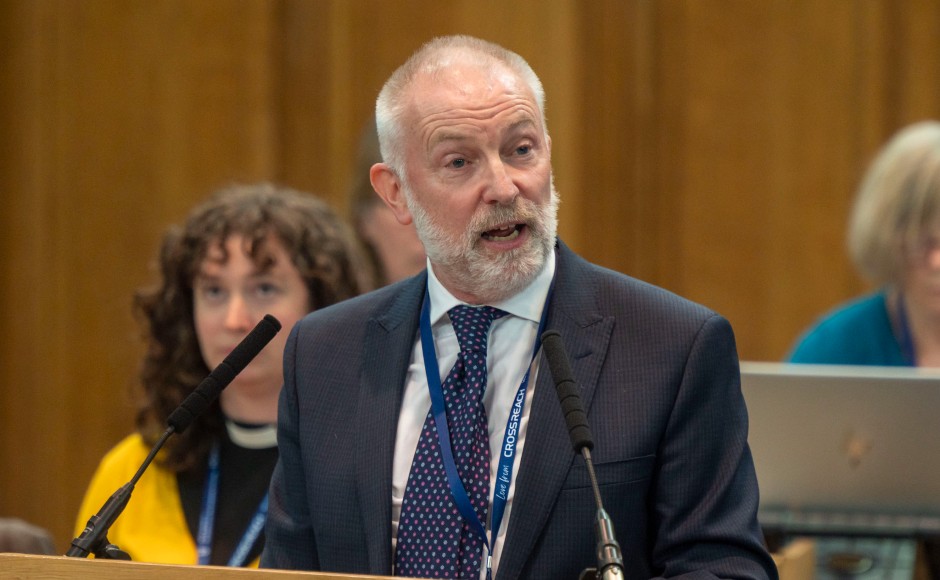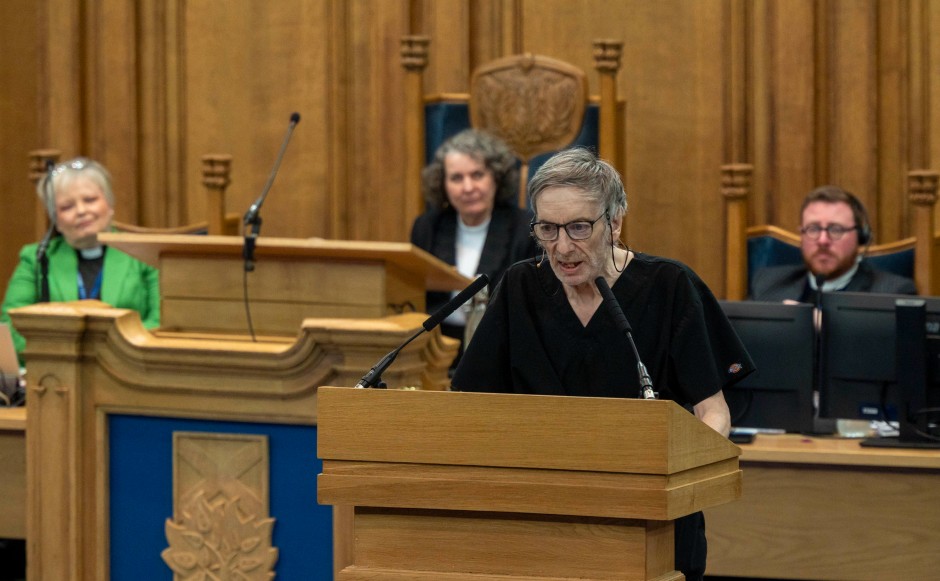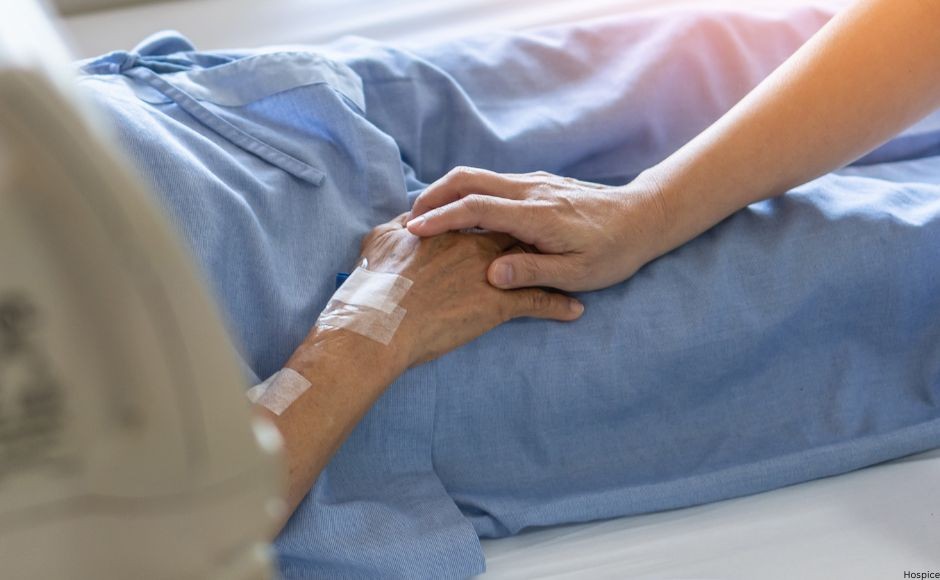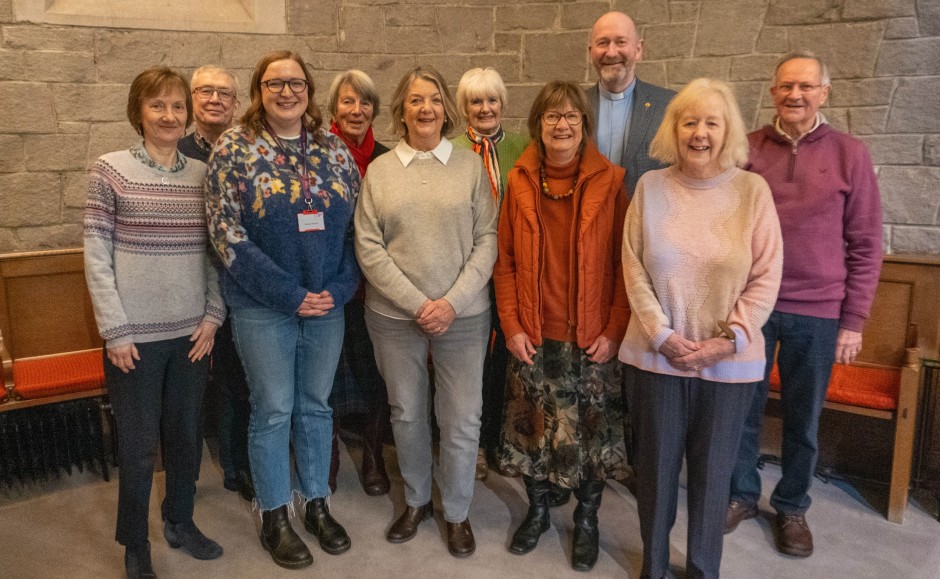Church recognises diversity of opinion but reaffirms opposition to Assisted Dying
Published on 20 May 2025 6 minutes read
The Church of Scotland has reaffirmed its opposition to Assisted Dying.
Members of the General Assembly rejected a motion that simply noted the diversity of theological views on the controversial issue and the integrity with which they are held.
Following a long and emotional debate, commissioners overall voted 216 votes to 104 for a countermotion brought forward by Rev Alistair Cook, which acknowledged the diversity of views but reaffirmed the Church's historical opposition.

The debate was based on a joint report brought forward by the Theological Forum and Faith Action Programme leadership team.
The working group listened widely to people's views on the complex and often emotive issue, consulting with a wide range of groups including medical professionals and researchers, both in the UK and in places where assisted dying has been legalised, hospital and hospice chaplains, academics, church members and politicians.
The initial vote to back Mr Cook's amendment was carried by 149 to 145
Rev Dr John Ferguson, convener of the working group said: "The General Assembly voted to maintain the Church of Scotland's historic position of opposition to the legalisation of Assisted Dying.
"The Working Group on Assisted Dying has investigated this subject over the last two years and we had recommended a position which would have meant recognising the integrity of the range of views that exist in the Church on this matter.
"On a tight vote - 149–145 - the Assembly chose not to do so, recognising that this would have changed the historic position of the Church to oppose Assisted Dying.
"However, the General Assembly did acknowledge the sincerity with which diverse views are held on the subject throughout the Church of Scotland.
"It was clear from the debate that there isn't consensus on this issue in the General Assembly and the tight margins of the vote today confirm that."
The Assisted Dying for Terminally Ill Adults (Scotland) Bill, introduced in the Scottish Parliament by Liam McArthur MSP, passed the first stage of parliamentary scrutiny earlier this month.
During the debate the Assembly was addressed by John Williams, who has managed the gathering's AV systems for over 50 years.
He has been on dialysis for seven years, and also has terminal cancer with no idea how long he has left to live.

Mr Williams said: "I find the report absolutely excellent and agree 100% with the conclusions it comes to."
However, he criticised the assisted dying legislation going through the Scottish Parliament as "a bad bill" and "not the way", describing palliative care funding in Scotland as "a national disgrace".
"It is open to abuse on so many levels and puts medical staff in an impossible position," he said.
Mr Williams asked the commissioners whether they would be willing to sit and listen to a terminally ill person who wanted to talk, and called for pastoral care training for everyone.
Rev Alistair Cook, minister of South Churches in Hawick who moved the countermotion, said he was "stepping with trepidation into this deep and emotive issue", but step he must.
He argued that assisted dying is assisted suicide and the change in language in the current debate did not provide such a negative response in people.
Mr Cook said: "The wisest advice I ever heard on this matter was from a retired Christian lawyer who said ‘you cannot allow the principle, once the principle is conceded the door is open and cannot be easily be shut and the safeguards cannot bear the weight put upon them.
"Moderator, we cannot allow the principle, I urge commissioners to support this counter-motion."
Rev Janet MacKellar, an OLM with the Clèir Eilean Ì: Highlands and Hebrides Presbytery, told the General Assembly that her husband Gordon was diagnosed with oesophageal cancer in 2012 and was told it was incurable and inoperable.
"He probably had around four months to live, he was offered chemotherapy as a potential avenue to extend his life but the prognosis was not good.
"He undertook the chemotherapy and after two doses, the tumour was reduced by 50% and after six doses, there was no evidence of cancer whatsoever.
"The oncologist said this ‘happens sometimes and we do not know why'.
"I told him why, because we had put our faith in God and he had come through for us.
"Gordon lived for a further 12 years, happy and healthy years, and we welcomed another six grandchildren into our family.
"Last year, Gordon died of a completely unrelated health issue, his oesophageal cancer never returned.
"God gives life and God takes it away, we are the people of God and we need to stand with our brothers and sisters, particularly the stance the Roman Catholic Church has taken,
"Stand up and be counted because people are looking to us at the Church, I commend Alistair's counter motion to this General Assembly."
The General Assembly voted in favour of the rest of the working group's deliverance with some amendments.
Commissioners affirmed that every human being is made in the image of God with inherent dignity and worth and acknowledging that the introduction of Assisted Dying legislation has the potential to negatively impact the quality and accessibility of palliative and end-of-life care.
The General Assembly called on the Scottish Government to prioritise development of "excellent" palliative care services to ensure that they are universally available and urgently review the funding models currently in place.
Commissioners agreed that if Assisted Dying is legalised, robust safeguards must be in place for all involved including medical staff whose ethical and moral principles should be respected and to support and protect potentially vulnerable groups including those with life limiting illnesses, disabilities, mental health issues and dementia.
They acknowledged that further resources and pastoral care training will be required should assisted dying be legalised.
Commissioners affirmed the understanding that suicide is not an unforgivable sin, and that sensitive pastoral care of those whose lives are affected by suicide is an inherent reflection of Christ's compassion to the bereaved.
Dr Ferguson said: "We are pleased that the General Assembly recognised our concerns in regard to the need for robust safeguards should Assisted Dying be legalised and of the urgent need for the Scottish Government to increase funding for palliative care.
"We remain, as a Church, committed to the pastoral support of those experiencing terminal illness with the disability and suffering that often accompanies it, affirming the value of every life, and advocating for the weakest and most vulnerable in society.
"The Church of Scotland remains fully engaged in conversations on Assisted Dying and palliative care and will continue to share evidence and insights with the Assisted Dying Bill in the Scottish Parliament."
Speaking after the vote, Mr Cook said: "I was surprised but very pleased that the counter motion passed.
"It acknowledged the breadth of views but affirmed the Church's opposition to Assisted Dying."
The General Assembly:
- Receive the Joint Report.
- Affirm that every human being is made in the image of God with inherent dignity and worth.
- Affirm our belief in God with us in life and at the end of life, and the gift of the resurrection, as contained in the Book of Confessions.
- Acknowledging that the introduction of assisted dying legislation has the potential to negatively impact the quality and accessibility of palliative and end-of-life care, call on the Scottish Government to prioritise development of excellent palliative care services to ensure that they are universally available and urgently to review the funding models currently in place.
- Acknowledging the diversity of sincerely held theological views within our broad Church, re-affirm the Church of Scotland's opposition to assisted dying.
- Agree that if assisted dying is legalised, robust safeguards must be in place for all involved including medical staff whose ethical and moral principles should be respected and to support and protect potentially vulnerable groups including those with life limiting illnesses, disabilities, mental health issues and dementia.
- Acknowledge that further resources and pastoral care training will be required, from FAPLT, should assisted dying be legalised.
- Recognising the value of open discussion around death and dying, commend the Report for further study, reflection and dialogue.
- Affirm the understanding that suicide is not an unforgivable sin, and that sensitive pastoral care of those whose lives are affected by suicide is an inherent reflection of Christ's compassion to the bereaved.
- Thank and discharge the working group on assisted dying.


